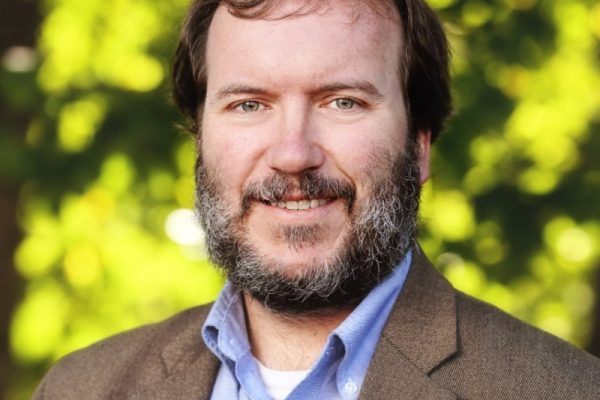Data Science Opens Path to Government Service for UVA Alum
In 2022, Brandtly Jones made what would seemingly be an unlikely career jump, leaving his job as a high school Latin teacher in Charlottesville to enroll in the University of Virginia’s data science master’s program.
Now, as a member of the recently created U.S. Digital Corps with a placement at the State Department, he is using the skills he developed as a graduate of the School of Data Science to make an impact on a global scale.
Jones’ story is a case study in the diversity of backgrounds that data scientists often have as well as the wide range of career paths that this rapidly emerging field can open, including in government service.
So, just how did a high school Latin teacher become a data scientist for the State Department? It started with a chance meeting.
Jones recounted running into a former colleague who had just started UVA’s residential data science master’s program in the summer of 2019. He was vaguely familiar with some of the topics she mentioned — artificial intelligence, machine learning — but didn’t know much about them.
Still, he was intrigued and enrolled in an online course on machine learning. He was soon hooked.
“There was kind of this sense of magic to it,” he said. By 2022 he was a residential data science master’s student himself, which, he said, proved to be “a really good fit.”
That Jones’ background – a doctorate in classics from Cornell followed by years as a Latin teacher – didn’t limit him from successfully transitioning to a career in data science illustrates the breadth of the field and the possibilities it offers.
“One of the things that’s interesting about data science is that I don’t know that there is a traditional path,” said Terence Johnson, an assistant professor of data science who served as Jones’ capstone advisor.
“All of the life experiences that people bring to it, I think, are valuable,” he added.
After finishing his master’s program, Jones was looking for another experience, and he would soon find another good fit.
The U.S. Digital Corps, which launched in August 2021, is a collaboration between several government offices and agencies, with the goal of giving technologists at the beginning of their career the opportunity to tackle big challenges and develop innovative solutions while in government service.
Jones learned about the Digital Corps at a virtual career fair and hearing from some of its fellows. When given the chance to join, he accepted after realizing that it “hit a lot of great notes.”
“For me, there’s opportunity for mentorship,” he said. “There’s an opportunity for growth. There’s this understanding that we’re all still learners.”
Jones now works with the State Department’s Center for Analytics, which focuses on using data to inform American diplomatic efforts and foreign policy decisions.
The former teacher now works with State Department employees, showing them modern tools that can help them work with data more effectively.
“I work with a program that is looking at leveraging AI and generative AI to enhance public diplomacy around the world,” Jones explained.
Those duties have also taken him across the world. Jones said that perhaps the most exciting experience he’s had thus far was traveling to embassies in West Africa where he was able to see first-hand how department staff were “using these tools and really transforming how they do diplomacy though the use of things like AI.”
Johnson said that data science can benefit from people like Jones pursuing it because “there are a ton of really important questions that need someone with a meaningful background, not just in statistics.”
For Jones, it’s a calling that allows him to do what he’s done ever since his days in the classroom – just with different tools and on a larger stage.
“The federal government touches hundreds of millions of people in America as well as billions of people around the world,” he said. “And so that opportunity for impact is really inspiring.”
